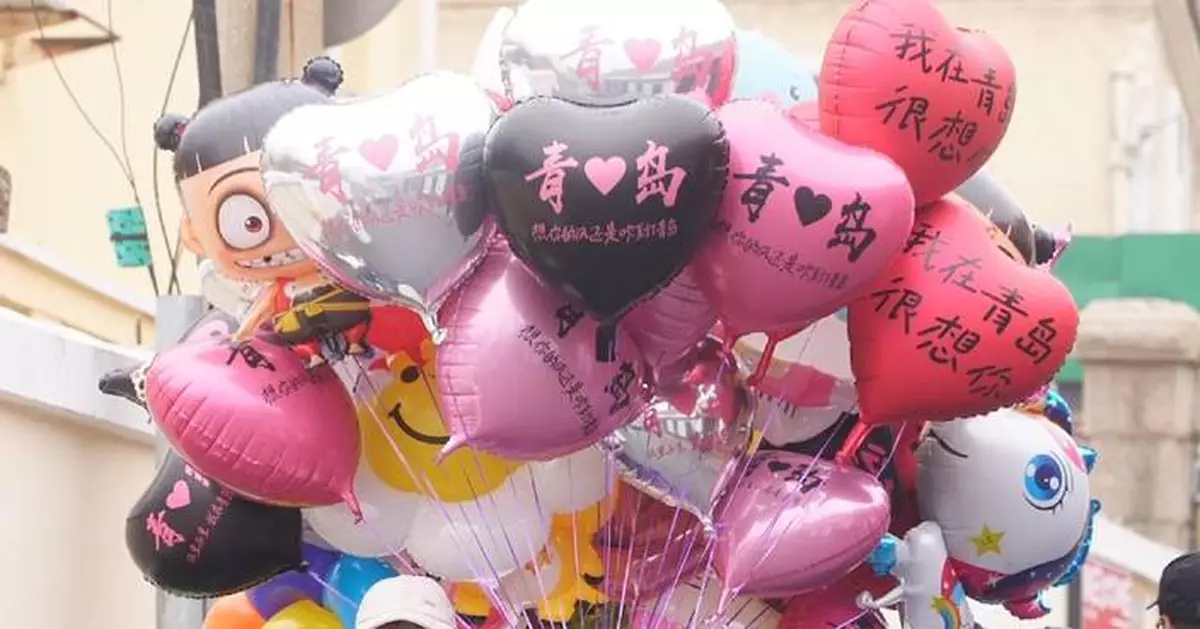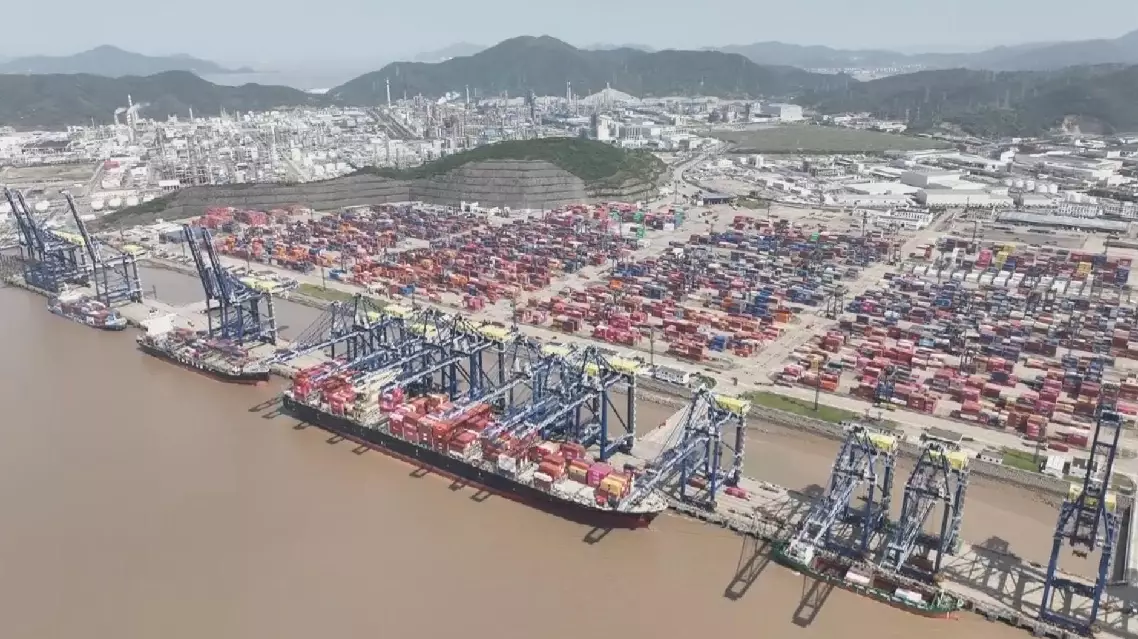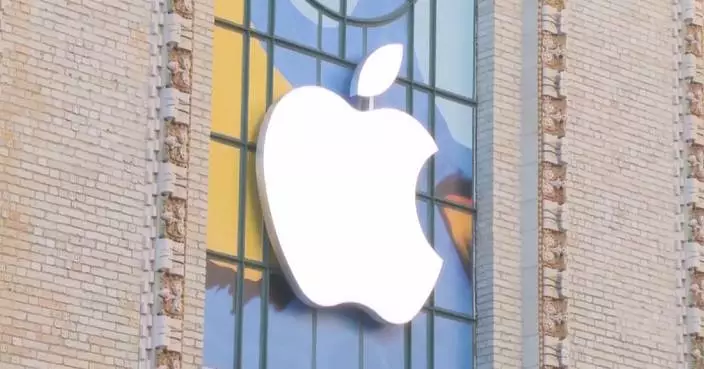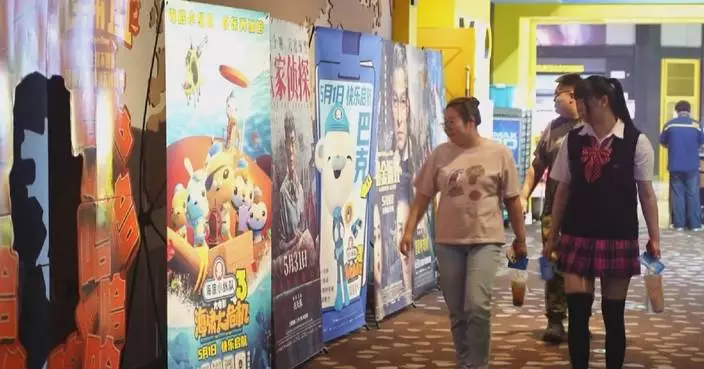The eastern Chinese city of Qingdao, boasting golden coastlines and a well-preserved cinematic legacy, is emerging as both a scenic travel destination and a thriving film hub, captivating visitors and filmmakers alike as the country's first UNESCO-designated City of Film.
Traditionally famous for its beautiful beaches and bustling beer festivals, this coastal city holds a lesser-known distinction as one of the cradles of the Chinese film industry. This year, as hits like Ne Zha 2 reinvigorate cinemas across China, film-inspired tourism is also gaining momentum -- and Qingdao is at the heart of it.
American media professional Adrian Wunderler-Selby, founder of Qingdao Tinghao Multimedia and a familiar voice on the city's metro broadcasts, recently joined CGTN's China Travel with Chinese Films to explore Qingdao's deep ties to cinema.
The journey began at China Cinema, the city's oldest theater, which has been screening films since 1931. This four-story cultural landmark has weathered the ups and downs of the industry for nearly a century.
Projectionist Sha Jian, who has worked in the cinema for 37 years, carries on a family legacy that began with his father.
"As early as 1975, the cinema upgraded to xenon lamp [projectors.] Before that, we were using carbon arc machines in the 1960s," said Sha, now deputy manager of projection technology.
As manual projectors gave way to digital systems in the early 2000s, China's film industry grew into a billion-dollar sector.
"The film industry has faced challenges since the pandemic, but this year we're seeing a recovery. The success of Ne Zha 2 has boosted confidence and given us hope," said Zhao Lu, duty manager of China Cinema.
Qingdao's allure as a film set is no coincidence. With its unique mix of historic European-style architecture and natural coastal beauty, the city has long attracted filmmakers. From the 1935 resistance film Children of Troubled Times to the 2020 youth drama A Little Red Flower, Qingdao's streets, squares, and shorelines have repeatedly made their way to the big screen.
One particularly emotional filming location is Haichang Ocean Park, also known as Qingdao Polar Ocean Park, featured in the 2010 film Ocean Heaven, in which action star Jet Li plays an aquarium worker caring for his autistic son. Though the film is a tearjerker, the aquarium itself remains a cheerful draw for tourists.
Over a dinner that naturally included the city's iconic beer, Tsingtao, Wunderler-Selby shared a little-known Hollywood connection that illustrates just how far Qingdao has reached.
"Harrison Ford orders a Tsingtao beer in Blade Runner," he said, referring to a scene from the 1982 science fiction classic.
As a fan of both its culture and its brew, Wunderler-Selby believes the city deserves wider recognition.
"To many people outside of China -- and maybe even some people here in China -- Qingdao is kind of like this hidden gem, where you won't realize how great it is until you actually come here," he said.
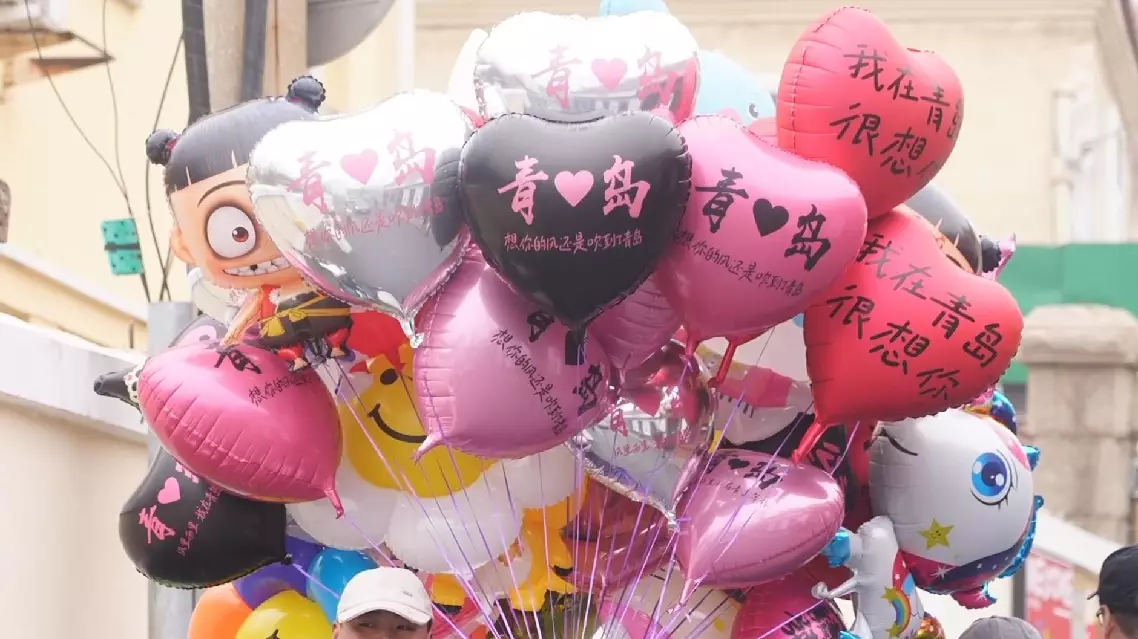
Qingdao's coastal charm meets cinematic splendor as UNESCO's First Chinese City of Film


